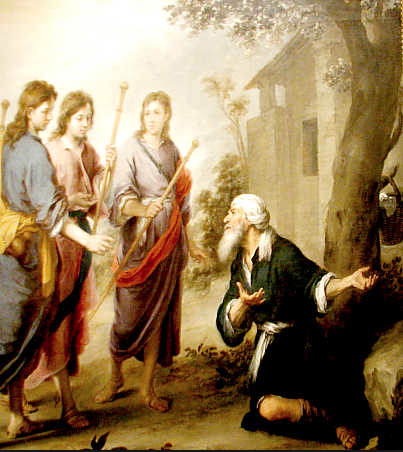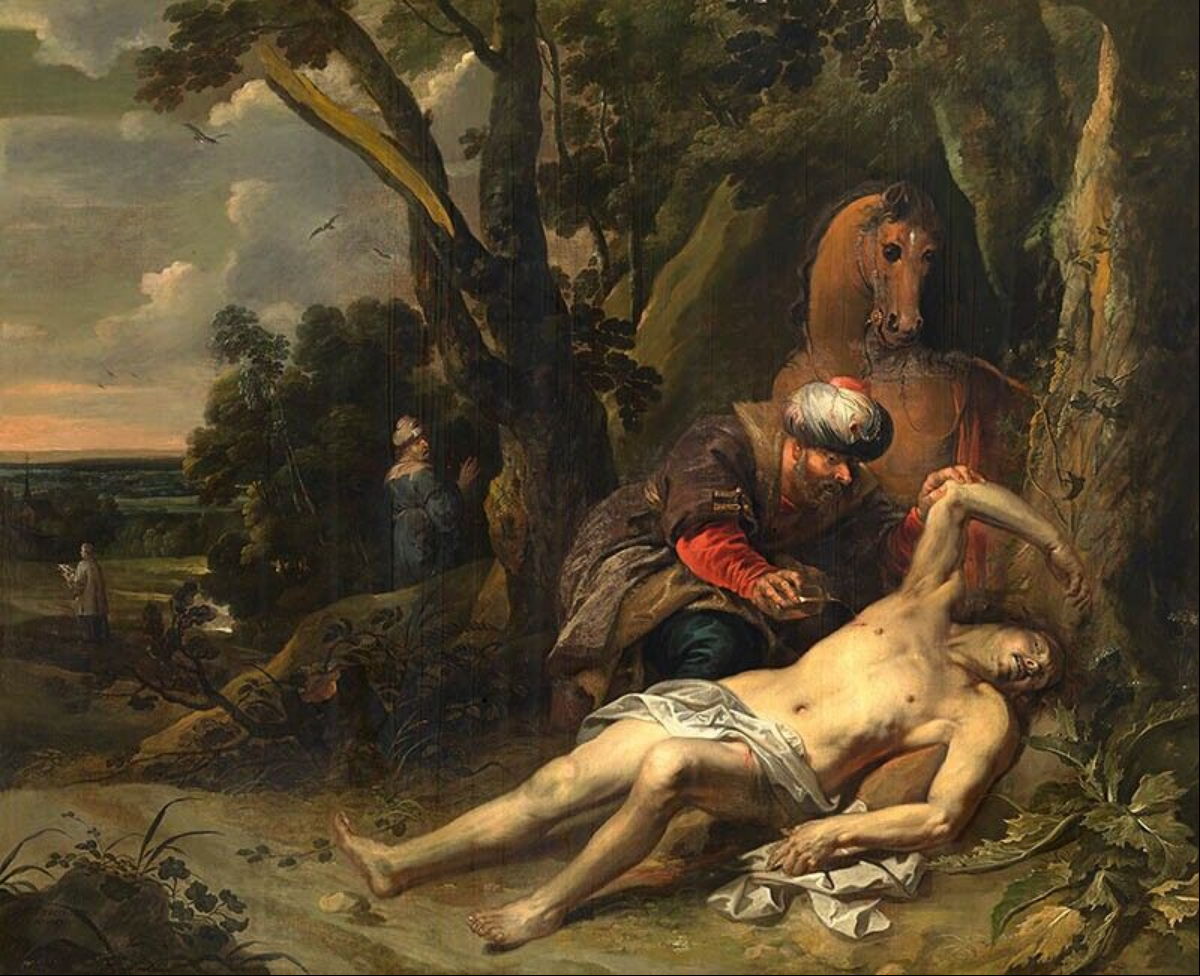
“Shall not the judge of all the earth do
what is just?” (Genesis 18:25)
Every family has that one (metaphorically
speaking) anal sphincter in it. You know the guy I’m talking about. He’s the
one who can’t get it together, who always screws up somehow, or who is always
in need of getting bailed out for something. In the Hebrew Scripture lesson for
Pentecost 7, Year C (Genesis 18:20-32) it’s Abraham’s nephew, Lot.
Lot’s not a really bad guy. It might just
be that he’s a little selfish and has really bad luck. He decides to accompany
his grandpa Tereh and his uncle Abraham on their first venture out of Ur of the
Chaldeans. When old Tereh dies, it’s Uncle Abraham who lets Lot journey with
him to the land that God has promised. When Lot’s herdsmen can’t seem to share
ground with Abraham’s guys, Uncle Abe gives this kid and his posse their pick
of grazing country. Lot—selfishly, if you ask me—chooses the best pasture land
for himself (See Gen 13:7). But, hey! Abraham’s a good dude, and he trusts God.
He figures he and his flocks and herds will get along just fine on the crappy
land because he believes in God’s promise to bless him.
So Abe and Lot part company—for a while.
For whatever reason, Lot gets out of the ranching business and settles in the
town of Sodom. Sodom gets attacked by rebellious marauders, and Lot and his
family are taken captive. Looks like Uncle Abe has to come to the rescue, so he
gathers his 318 guys and attacks the marauders and rescues Lot (see Gen 14).
After all, the guy is his nephew, and you have to help out your family, don’t
you?
When we catch up with Abraham in the
lesson appointed for Pentecost 7, he’s just been blessed by three strangers
whom he correctly perceives to be the manifestation of Almighty God. These guys
promise him (once again, because Abraham gets a little worried and doubtful
from time to time—and don’t we all..?) that he will soon have his heart’s
desire, a son and heir by his wife Sarah. Sarah, believing she is
post-menopausal, gets a good chuckle out of this, but it turns out that the
laugh’s on her.[i]
All’s well that ends well, right? But the
kicker here is that the three divine strangers tell Abraham that they’re off to
check out the wickedness of Sodom, Lot’s stomping ground. Abraham knows this
can’t be good. If God is going to investigate a place for its wickedness,
there’s a really good chance that place isn’t going to be around much longer.
The Almighty might just nuke it, and Lot with it. So Abraham, once more pulling
Lot’s chestnuts out of the fire, enters into some very obsequious negotiations
with God. He dickers God down to an agreement to save the city for the sake of
ten righteous people. I guess the upshot of the deal is that both Abraham and
God agree it’s better to forgive the guilty than to punish the innocent.
(By the way: The great sin of Sodom and
Gomorrah isn’t what some people think. God isn’t smiting theses cities because
the inhabitants are gay. In fact, the rape suggested in chapter 19:5 and
following might be better understood as a prison rape. That is, it’s committed to
shame and dehumanize the victim, not out of sexual lust. The reception of the
strangers in Sodom is contrasted with Abraham’s gracious welcome of them in
chapter 18. The Sodomites are suspicious and treat strangers with contempt.
Another explanation for Sodom’s sin is found in Ezekiel 16:49—“This was the
guilt of your sister Sodom: she and her daughters had pride, excess of food,
and prosperous ease, but did not aid the poor and needy.” Imagine a wealthy
society with contempt for the poor and the stranger. We Americans better get our
act together!)
I really like that the Revised Common
Lectionary has married this lesson with the passage in Luke’s Gospel about
prayer and persistence (Luke 11:1-13). Abraham keeps badgering God to be
merciful, and Jesus teaches that perseverance has power. The way we pray says a
lot about how we understand God. Sedulous persistence in prayer means we know God is merciful, and we believe
that we will be in relationship with
God. We pray unceasingly in the confidence that our path will be made clear for
us, our confusion and sorrow abated, and this messed-up world will get a little
less messy.
Martin Luther called despair a “great and
shameful” sin.[ii]
I think this sin has its origins in neglecting our prayer life. Prayer is
essential for righteousness, and righteousness is more than just not being at
fault. Righteousness demands activity for the Kingdom of God. The strength to
be active participants starts with asking God for that strength. We ask knowing
that God is merciful, just, and generous.
We’re all just like Abraham, because we
all have a “lot” to pray for. The solutions to our problems and the world’s
problems may not be obvious, but if we keep seeking, we will find.
Thank you for seeking my blog this week. I
appreciate it more than you know.
[i]
More
accurately, we could say the laugh’s in her, because the son she conceives is named Isaac, Hebrew for
laughter.
[ii]
See the explanation to the Sixth Petition of the Lord’s Prayer in the Small Catechism.


